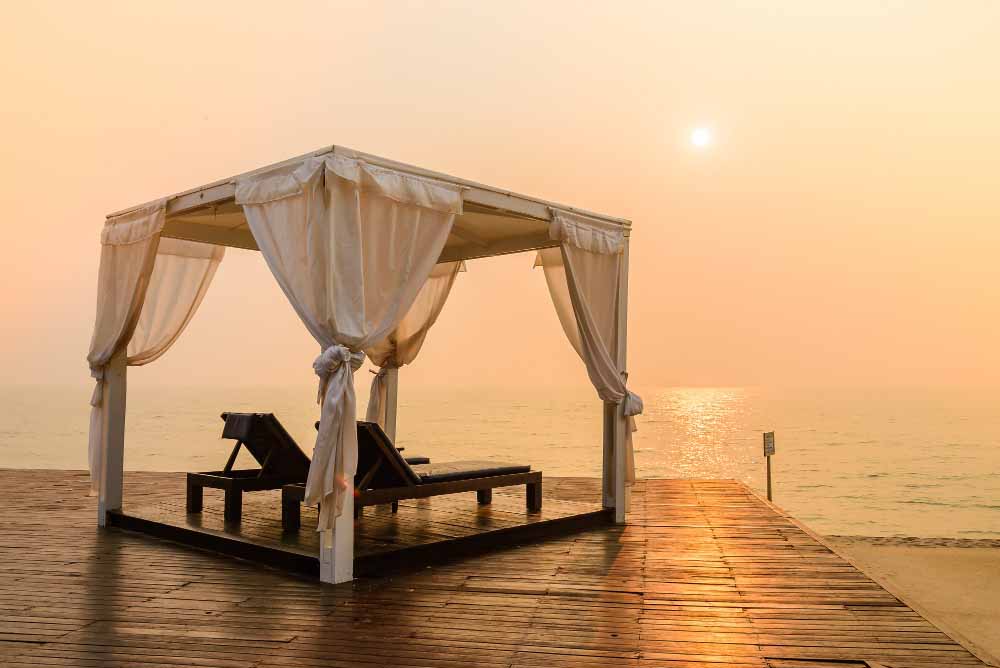In an uncertain economic climate, businesses need to take a strategic approach to managing revenue streams. Hospitality saw major disruptions from 2020 – 2022 and the industry took a big hit that was followed by a period of “revenge travel” during which people were reportedly willing to spend big money on bucket list trips and memorable experiences – but that uptick couldn’t last forever. Predictions of a recession abound, analysts are biting their nails over global inflation, and we’re seeing a leveling out as people are coming back down the Earth and curbing spending on all kinds of things, from food and other retail items to, of course, extras like travel.
Even the well-to-do are reining in their vacation spending, according to a recent Bloomberg survey of 465 respondents from the US, Canada, and Europe that included traders, portfolio managers, senior managers, and retail investors. The poll found that respondents don’t want to pay more than $500 a night for a hotel, even for “greener or fancier options.”
The author of a report on the survey notes that, “The results come during what should be one of the busiest periods for travel booking.”
“What is the maximum you are willing to pay for a night in a hotel on vacation this year?”
Asked the question, “What is the maximum you are willing to pay for a night in a hotel on vacation this year?” approximately 69% of poll participants said their maximum budget for a night in a hotel room was $500, while 24% were willing to spend up to $1,000. Five percent set their limit at $2,000, and 2% may spend $3,000 or more a night. The number of people “splashing out” on their next vacation was a small seven percent
Setting the limit at $500 eliminates more upscale hotels in most major markets, and even suites or larger rooms at mid-tier properties.
According to data from Google, five-star hotels in New York City are typically priced between $523 – $999 per night in April and May. In Paris they range from $707 – $1,382, and in St. Barts, the average is $1,451.
Bloomberg states, “The results of the survey suggest that luxury hotels, restaurants and airlines will face increasingly irritated consumers this summer,” and muses that the decreased willingness to spend may be a reflection of diminishing consumer confidence or feelings that service quality has not increased apace with inflated pricing.
Boost profits in a downturn with yield management
It should go without saying that elevating service quality is essential when one is charging luxury prices. But, just in case it doesn’t go without saying: elevating service quality is essential when one is charging luxury prices.
That said, revenue management strategies can also alleviate much of the pain during slow periods and help shore up that bottom line.
Hotels and resorts facing a pullback on customer spending might consider emulating the airlines and implementing yield management. Airlines have been using yield management since the 1970s, and American Airlines CEO Robert Crandall has given it credit for saving the company from bankruptcy.
Exploring more revenue management strategies
More recently, airlines have taken revenue management further. Services that were once bundled in with the cost of a plane ticket are now commonly sold separately, most notably checked bags, but also meals, alcoholic beverages, and even headphones.
Hotels and resorts with spas or ancillary revenue departments that are already employing yield management may explore more revenue management strategies with rooms and services like upsells and add-on packages.
We know that discounting services can negatively impact a brand but “upgrading” to VIP spa services or in-room treatments and services, for example, can have the opposite effect of increasing, rather than decreasing, perception of value. A mini facial or hot stones added to an existing spa reservation, for example, costs little for the property and adds value for the guest. Similarly, a VIP Cabana package of food, drink, and a poolside massage, or post-ski, fireside experience with a cheese plate and glass of sparkling wine or hot toddy, can do the same.
Travelers intending to spend less means hospitality companies have the opportunity to get creative with their offerings to make guests feel that their money is well spent. There will always be a market for excellent service quality and truly exquisite experiences.
If you’re looking into revenue management strategies, Book4Time software can help. Get in touch to learn how.
Image by mrsiraphol on Freepik

